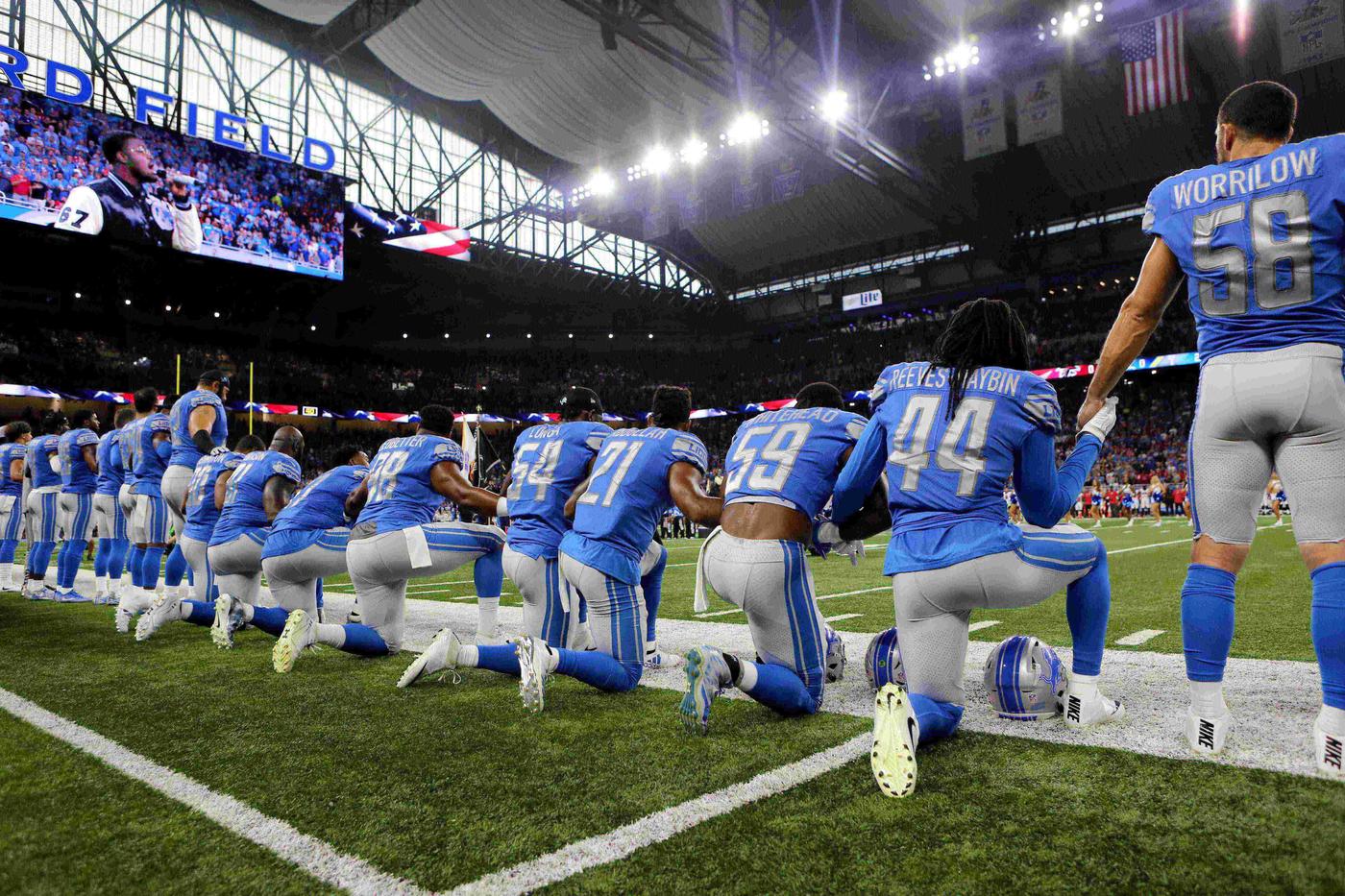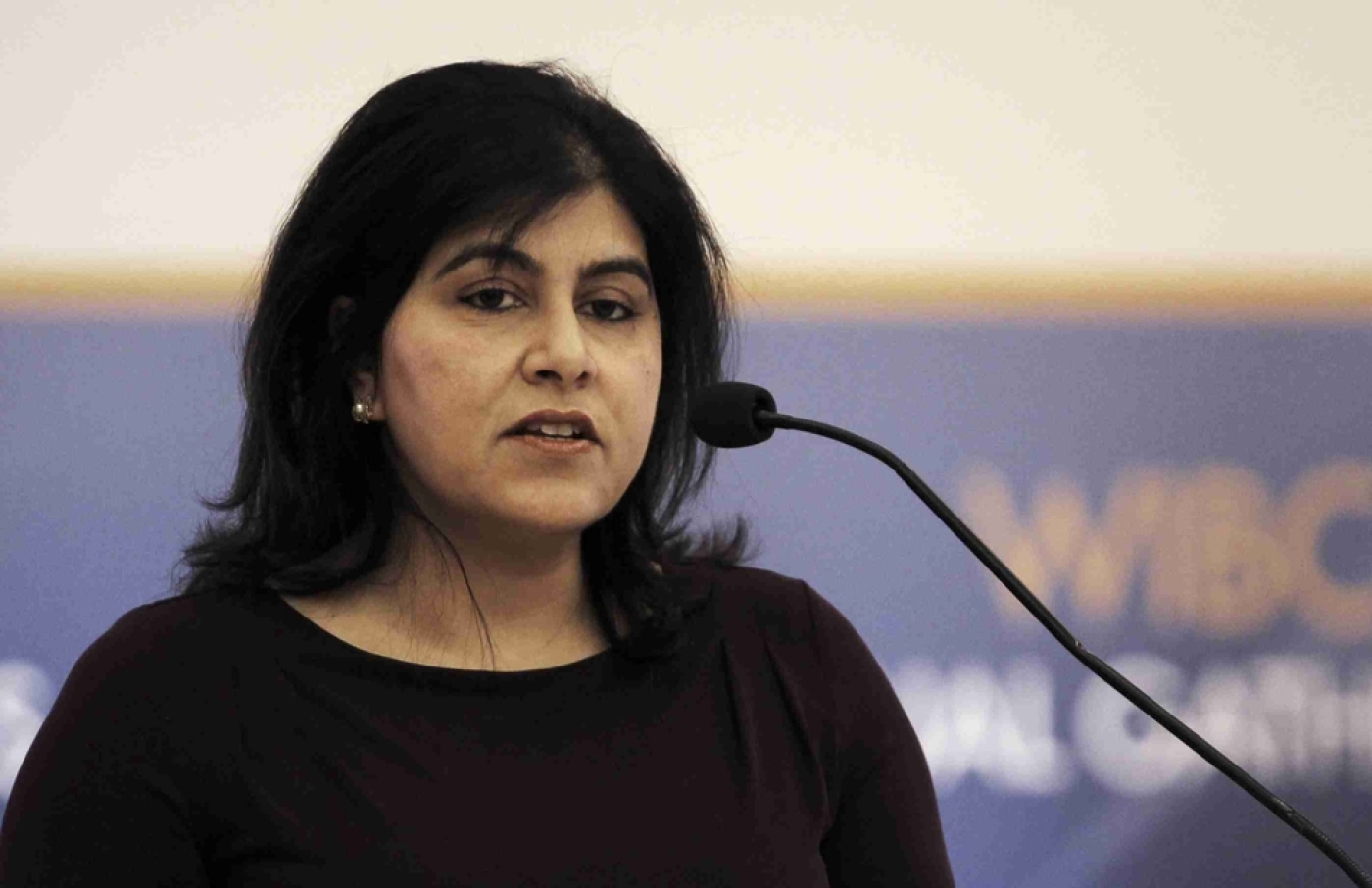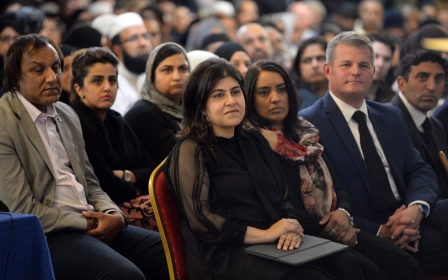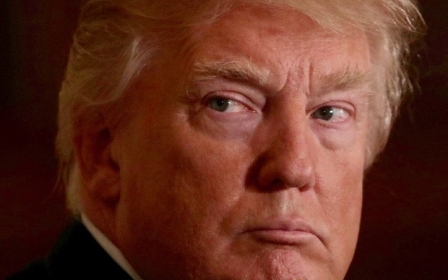British, Muslim and proud: Cricketer Moeen Ali shows how faith is no barrier to batting for England
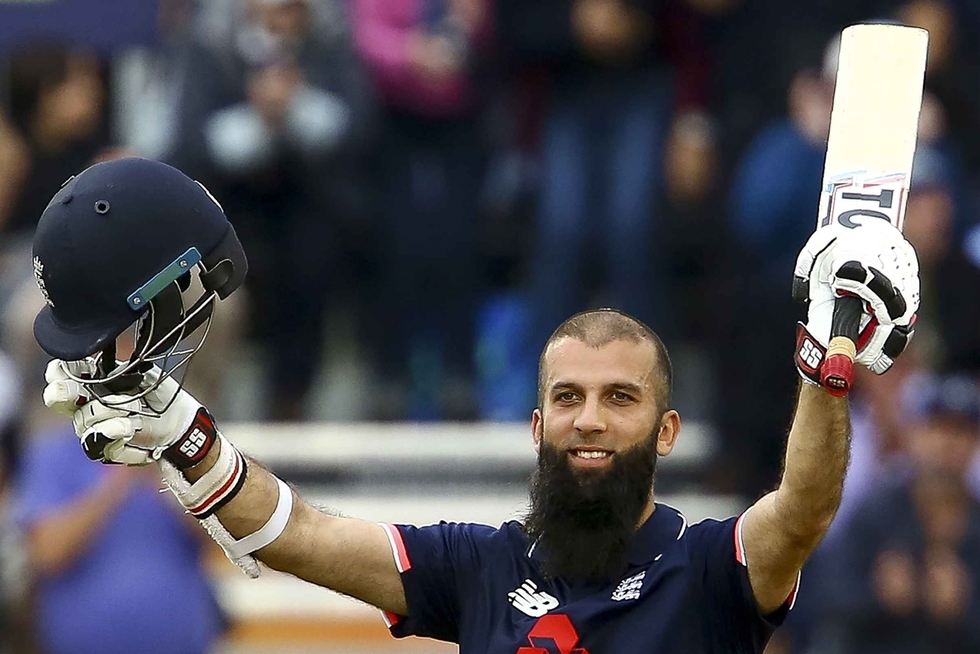
American footballers made an impressive political statement on Sunday at London’s Wembley stadium when they became the latest US sportsmen to refuse to observe the national anthem and instead “took the knee” in protest at the racism of Donald Trump.
They stand in the tradition of US athletes like Muhammad Ali, who protested against the Vietnam War in 1967, and Jesse Owens, who appalled Adolf Hitler with his four gold medals at the 1936 Olympic games.
Such statements are rare in Britain. But Moeen Ali, our latest sporting hero, is making his own contribution in an understated and very British way.
Ali, man of the series during the summer Test cricket season which ended at the weekend, has captured millions of hearts with his brilliant batsmanship and match-winning bowling.
But he has also achieved something which no British Muslim sportsman - and precious few public figures - has done before.
Moeen Ali does not apologise for his Muslim identity. He prays five times a day. He fasts during Ramadan. He does not drink. And he has the most magnificent beard since the Victorian sporting hero WG Grace more than a hundred years ago.
Unknown composure
More important than any of these things, he has repeatedly been outspoken on issues such as Gaza and Palestine, from which most ambitious British Muslims have tended to run a mile.
Three years ago, Ali gave an interview to the Huffington Post. He spoke admirably about his experiences and responsibilities as a British Muslim in public life.
Ali agreed with interviewer Mehdi Hasan that he is a Muslim role model. He spoke critically but in a thoughtful and measured fashion about media bias against Muslims.
He expressed his point of view on Palestine, an issue which had got him in trouble when he wore “Free Palestine” and “Save Gaza” wristbands while playing in a Test match during the Israeli air assault on Gaza that year.
He explained that he had not wanted to make a political point by wearing the wristbands, but had simply not taken them off before going out to play. His was a “humanitarian” concern, he said. He just wanted the “killing to stop. On both sides.”
He also commended the “brave” decision by former Foreign Office minister Sayeeda Warsi to resign from the government in protest at the failure to condemn the Israeli offensive.
That Ali was not afraid to discuss these issues was all the more impressive for such a young man, who was only 27 at the time
That Ali was not afraid to discuss these issues was all the more impressive for such a young man, who was only 27 at the time.
This month he has repeated some of those sentiments in an interview with The Times. Ali told the newspaper that his faith is the key to his success. It is certainly working.
At Bristol he took England to victory over the West Indies with a century from only 53 balls. His fearless batsmanship also secured England victory at the Oval. He is in the running to be named the BBC Sports Personality of the Year.
This composure is not just unusual. It’s unknown. There have been several Muslim cricketers who have played for England before. None of them has done what Ali has.
The unwritten law
Any British Muslim who enters public life is subject to an unwritten law. This law states that if they want to get on then they must suppress their Muslim identity.
They must act as if they don’t have any significant religious opinions of any kind. The classic case in point concerns Sajid Javid, the secretary of state for communities and local government.
Javid is the son of a Pakistani bus driver. He was brought up as a Muslim and yet has distanced himself from his “Muslim heritage” since he started to make progress in Conservative politics.
A protege of George Osborne, who gave him his first two jobs in government – as parliamentary and then financial secretary – Javid does not practice Islam. The only religion practiced in his home is Christianity, by his church-going wife Laura.
Javid has never wasted his political capital on visceral issues for British Muslims such as Palestine, the Rohingya Muslims of Myanmar or the Iraq War.
Similar considerations more or less apply to Sadiq Khan. He is a practising Muslim who has found himself at loggerheads with Donald Trump over the president’s travel ban on Muslims. He has condemned jihadi terrorists for their “sick and wicked ideology”.
But the London mayor has not taken it upon himself to speak out on the wide range of political issues that concern British Muslims – although this did not prevent David Cameron’s Conservative Party aiming every kind of slur against him in the run-up to the mayoral election in 2016.
Only one mainstream public figure has done anything like what Moeen Ali has attempted. That is ex-cabinet minister Sayeeda Warsi with her resignation over Gaza
The same applies to leading writers and poets. Tariq Ali, for example, is a secular figure who focuses on old-fashioned leftist agitation.
And many would not realise that former England cricket captain Nasser Hussain, who praised Moeen after his century at Bristol, is Muslim also.
Only one mainstream public figure has done anything like what Moeen Ali has attempted. That is ex-cabinet minister Sayeeda Warsi with her resignation over Gaza.
She has been all but turned into persona non grata ever since. Her fate illustrates the crucial truth that prominent Muslims are seen as outsiders to the British political and media establishment and find it hard to progress.
Moeen Ali: National figure
This all puts Moeen Ali in a very interesting position. He avoids the usual insults and smears many Muslims have to sustain because he is such a popular figure, a wonderfully graceful batsman and an increasingly effective bowler.
He is also an impeccable professional. There is no danger that he will be caught, like his teammate Ben Stokes, in an ignominious street brawl.
In my view Moeen Ali may emerge as a future England captain. Indeed, he is a candidate to replace Ben Stokes when, as seems possible, the latter is stripped of the role of vice captain.
The presence of Ali in the England cricket team has sent out a message to British Muslims that they no longer need surrender their identity in order to get ahead
The presence of Ali in the England cricket team has sent out a message to British Muslims that they no longer need surrender their identity in order to get ahead.
As an English cricket fan, I hope that Ali stays exactly the same for the time being. His job is to score runs and take wickets.
But over time I predict that he could become a national figure who, like the “coloured” South African Basil D’Oliveira, or the black West Indian Learie Constantine, fundamentally changes the way minorities – in his case British Muslims – are seen.
Moreover, Moeen Ali will achieve this without compromising his Muslim identity and values.
Long may he survive and prosper.
- Peter Oborne won best commentary/blogging in 2017 and was named freelancer of the year in 2016 at the Online Media Awards for articles he wrote for Middle East Eye. He also was British Press Awards Columnist of the Year 2013. He resigned as chief political columnist of the Daily Telegraph in 2015. His books include The Triumph of the Political Class, The Rise of Political Lying, and Why the West is Wrong about Nuclear Iran.
The views expressed in this article belong to the author and do not necessarily reflect the editorial policy of Middle East Eye.
Photo: England's Moeen Ali gestures after reaching his century off 53 balls during the third one day international cricket match played between England and the West Indies at the Brightside Ground in Bristol on September 24, 2017 (AFP)
Middle East Eye propose une couverture et une analyse indépendantes et incomparables du Moyen-Orient, de l’Afrique du Nord et d’autres régions du monde. Pour en savoir plus sur la reprise de ce contenu et les frais qui s’appliquent, veuillez remplir ce formulaire [en anglais]. Pour en savoir plus sur MEE, cliquez ici [en anglais].



